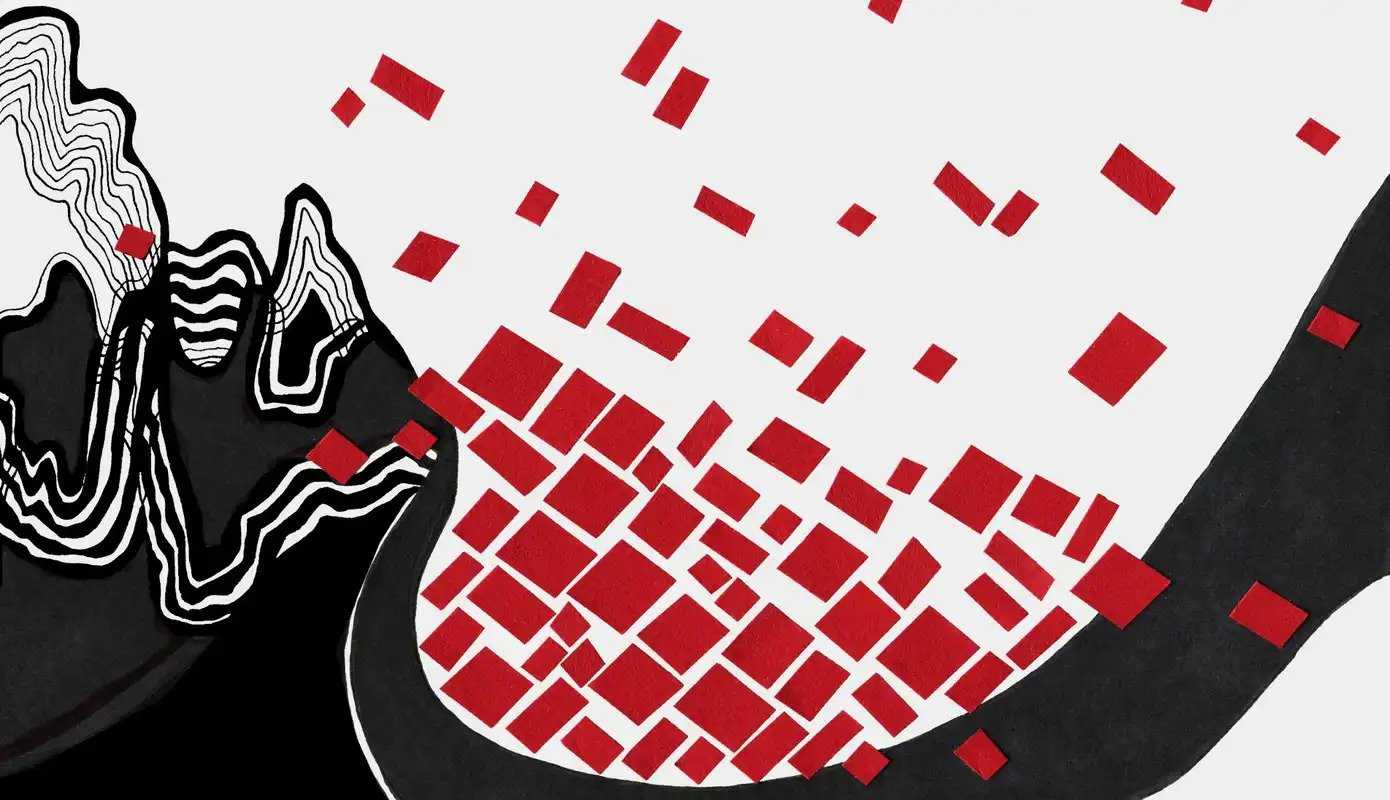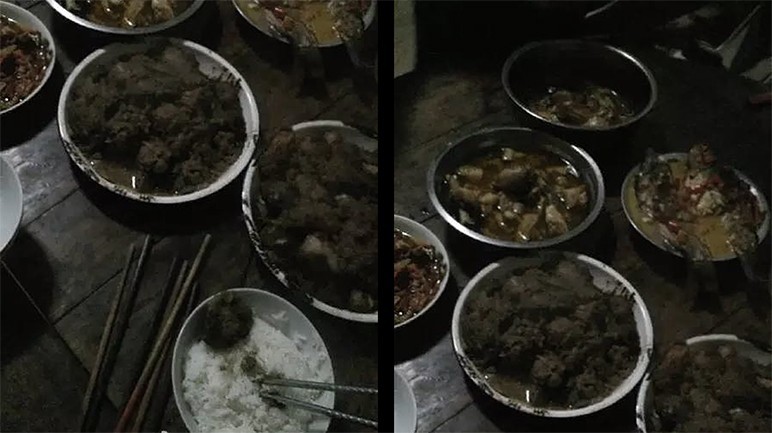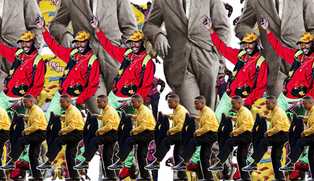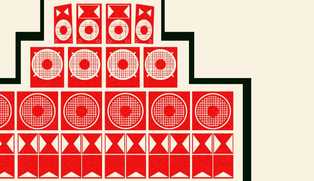This piece was written by the anonymous author of Chublic Opinion, a Beijing-based blog that dissects current events shaping public opinion in China. Food occupies a sacred place in the celebration of the Spring Festival. The whole Chinese experience during these few days each year is built around eating: the careful preparation before, the sophisticated rituals during, and the extended wrap-up after the feast. This year, one such dinner party went terribly awry and became a national spectacle. Not only did the extended wrap-up not happen, it actually involves a guest running away from it. And she did not just run from it – she fled hundreds of kilometers from where the dinner was to her home in Shanghai, in a borrowed car. So how horrible can a table full of food be? The young woman posted a picture on a Shanghai-based web forum. For eyes not spoiled by the aesthetics of the Chinese cuisine, it might not be immediately obvious why it is that bad. It looks like there is plenty of meat on the table, all put in large steel containers that can hardly contain them. If relocated to another context, this might well be a symbol of abundance. But for a Chinese person, it is at once clear that this is an unrefined dinner from the countryside. The color is unsightly, materials are illegible at best, and the containers – steel rather than china – are simply indecent, particularly for a dinner on New Year’s Eve. Even though the authenticity of this dinner party is heavily contested, it is understandable that a white collar from Shanghai can feel frustrated with such quality of food. It was supposed to be her first dinner at the home of her boyfriend, a colleague from rural Jiangxi province, one of China’s most poverty-stricken landlocked provinces. Before making up her mind to embark on that over-dramatic cross-country escape the next day, she sought support from fellow forum users in Shanghai. The underlying message was not just about the dinner, it was about whether she should give up that relationship. The post almost touched off a referendum on the issues of marriage, etiquette, and women’s rights, among others. Compared to that, the suspicion that the whole thing was fabricated by the online forum to salvage its dwindling traffic is beside the point. The bizarre incident once again thrusts the issue of rural China into the national conversation. Only this time, the collective gaze turns unambiguously harsh. The intellectual tradition that sympathizes with the peasantry runs deep in the Chinese culture. The canon of Chinese classics is stocked by beautifully written passages that bemoan the abject lives of its men and women in the countryside. That tradition paves the foundation for the egalitarian aspirations in much of China’s dominant political thinking throughout its quest for modernization. More recently, the precarious situations of “farmer”, “agriculture” and “countryside” capture the imagination of not only the country’s intellectsia, but also its leadership, making rural issue the nominal “number one” issue for the past decade. That warmth toward the dirt roads, the paddy fields and the hunched figures laboring in them is dissipating. And strangely, the forces tearing that emotional attachment apart are supposedly “progressive” trends: the advocacy for women’s right, the belief in equal status of husband and wife, the care for children’s well being… All that newfound hostility is concentrated in a term originated on the Internet: “the Phoenix Man”. Its precise origin is untraceable but it is safe to say that it emerged out of the pages upon pages of online sharing of family tensions and dramas, at forums that excel at such topics, such as Tianya or Liba. Even though the phoenix, a mythological bird that regenerates itself through blazing nirvana, is often associated with luck and blessing in the Chinese culture, the “Phoenix Man” is actually a satirical play of that cultural heritage. It refers to a category of Chinese male, who invariably comes from poor, rural roots and have received higher education in the cities. Through that education they manage to join the ranks of the urban middle class or even higher, get married to an urbanite, and settle down in one of the concrete jungles of the east coast. It sounds like an inspiring story of the China Dream but it’s not. The narrative of the “Phoenix Man” is actually a wake-up call of the China nightmare. The rural roots of the Phoenix Man carry much “baggage”, both material and emotional, as the story goes. He feels infinitely indebted to his family, his relatives, his kinsmen, who are left behind in his hometown. Their sacrifice has propelled his rise in social ranks. So he needs to pay them back (and they feel entitled to that payment), often by squeezing his own modest resources. The urge to reciprocate starts to shape his personality: he becomes paranoid, petty and ultra-sensitive to his status. It takes a toll on his relationship, as his girlfriend/wife is often reluctantly drawn into his orbit of incessant repayment. There is a strong patriarch element to the legend. Despite coming from more modest background than his female partner, a Phoenix Man is yet adamant in insisting that they play by HIS set of values. She can’t reject that ancient obligation to his village folks. She has to embrace it lest she loses his love. The fact that in early 21st century a kind of prototypical personality can be so precisely and vividly pinned down through anonymous “crowd-posting” on the Internet is in itself something spectacular. To some extent, it can be read as a quiet, unobtrusive resistance to a suppressive relationship imposed upon a large number of Chinese women. Instead of an open revolt against their men through nasty fights, splits, divorces, they take to online forums to share, recount, and mock. Their collective work is no less powerful. In no time, there are novels personifying that character and television dramas visualizing that label. But a supposed correction of one set of imbalance (men vs. women) has exacerbated another (city vs. countryside). And that other set of imbalance has been in a state of disrepair for a long time. The Chinese peasants have endured the fate of being an “afterthought” for millennia. They have been the subject of heavy taxation, brutal conscription and devastating collectivization. Even with political movements ostensibly run in their names, they end up becoming the loser, being locked up in their backwardness by a system that restricts their upward mobility in the society. The “folk education movement” (pingmin jiaoyun) tradition, albeit marginalized in the upheavals of 20th century Chinese history, is probably the only serious attempt from China’s educated elites to “payback” to a class perpetually betrayed. That tradition manifests itself in recent years in the form of sympathetic accounts of the sorry state of the Chinese countryside by liberal intellectuals, journalists and artists. Almost around this same time last year, a wave of nostalgic sentiments swept through the Chinese Internet. The annual reverse migration back to the countryside during the Spring Festival by the hundreds of millions who work in the cities creates first-hand accounts of the country’s struggling rural communities. In the most popular ones, authors lament about the dissolution of traditional rural values, demoralization of those remaining in the countryside and the disintegration of once strong bonds among people. The eruption of such sentiments became a national post-Spring-Festival topic that drew in the country’s most powerful media institutions. This year almost saw that same mood unfold as the Lunar New Year approached. Weeks before the national celebration, a piece written by a female scholar who spent some time in her husband’s hometown in the underdeveloped part of Hubei province started to circulate on the web. It is a troubling account of a family and a community disintegrating under the pressure of poverty and sheer whims of life. Their social safety net is so thin that one construction contract going awry sent a relatively prosperous family deep into the abyss of debt. The stress spreads across the family and starts to eat into the life of the author and her husband, who is the only son in his family with a higher education and an academic job in the city. He is a Phoenix Man. But the author, a deeply compassionate social scientist, was sophisticated enough to reject that label and to relate to the tremendous ethical burden her husband shoulders. She is also sorely aware of how stigmatization like this could close the only remaining channels of upward mobility for people from China’s poor rural regions. The article again raises concerns over the precarious state of the country’s rural communities. But that concern was completely drowned out by the dubious dinner in Jiangxi province. In its place, a very genuine distaste descends on the farmers and the “lifestyle” they embody. In its most extreme form, a self-claimed “petty bourgeois” female writer goes all the way to explain, with a seriousness that borders on being scary, why social classes are not supposed to mingle, and why it is a good thing to have social stratums separate themselves naturally “like mud from water”. A girl who grows up knowing that steel plates are indecent does not deserve to marry into a family that prepares a dinner like this. The unabashedness and self-righteousness in her message are already glaring. What’s even more troubling is the unexpected surfacing of another line of assault, which, strangely, springs out of a concern for women’s fate in the province of Jiangxi. By highlighting the legitimately disconcerting data that shows Jiangxi as among the provinces with the highest fatality rate for baby girls, posters make a far-fetched case for the escape of our heroine, claiming that she has the right to leave behind a place that treats women in such hideously evil ways (The suspicion goes that peasants in Jiangxi province kill baby girls intentionally as a way of sex selection). The problem with that argument is that it casts the systematic practice of sex selection of newborn baby simplistically as a moral failing of individual farmers, and from that reading women’s right advocates derives a kind of punitive indignation completely directed at the rural community. No question is raised about the role of the state in causing this problem: the issues of one-child policy or rural education never surface during such discussions. People seem to be complacent about stopping the questioning at the individual level of the poor farmers. They finally have someone to blame for the misery of Chinese women in the countryside. The feminist backlash against the peasant class is the most intriguing turn of events in this saga about one silly dinner. It is hard to tell how much of that can be attributed to the systematic removal of the “root cause critique” from public discourse. As observer Song Zhibiao puts it: “Prejudice is often de-politicized. From the very beginning there is no mention of the government, as if the Chinese countryside is an isolated utopia, a self-contained sin that has nothing to do with the cities. It only deserves to die by itself, silently.” In 21st century China, its aging, sick and disenfranchised countryside is faced with another menace: urban public opinion turning unforgiving. * It has been confirmed that the story of the dinner is completely fabricated.
No country for Phoenix Man

Gender, class and online forums, from Jiangxi to Shanghai




